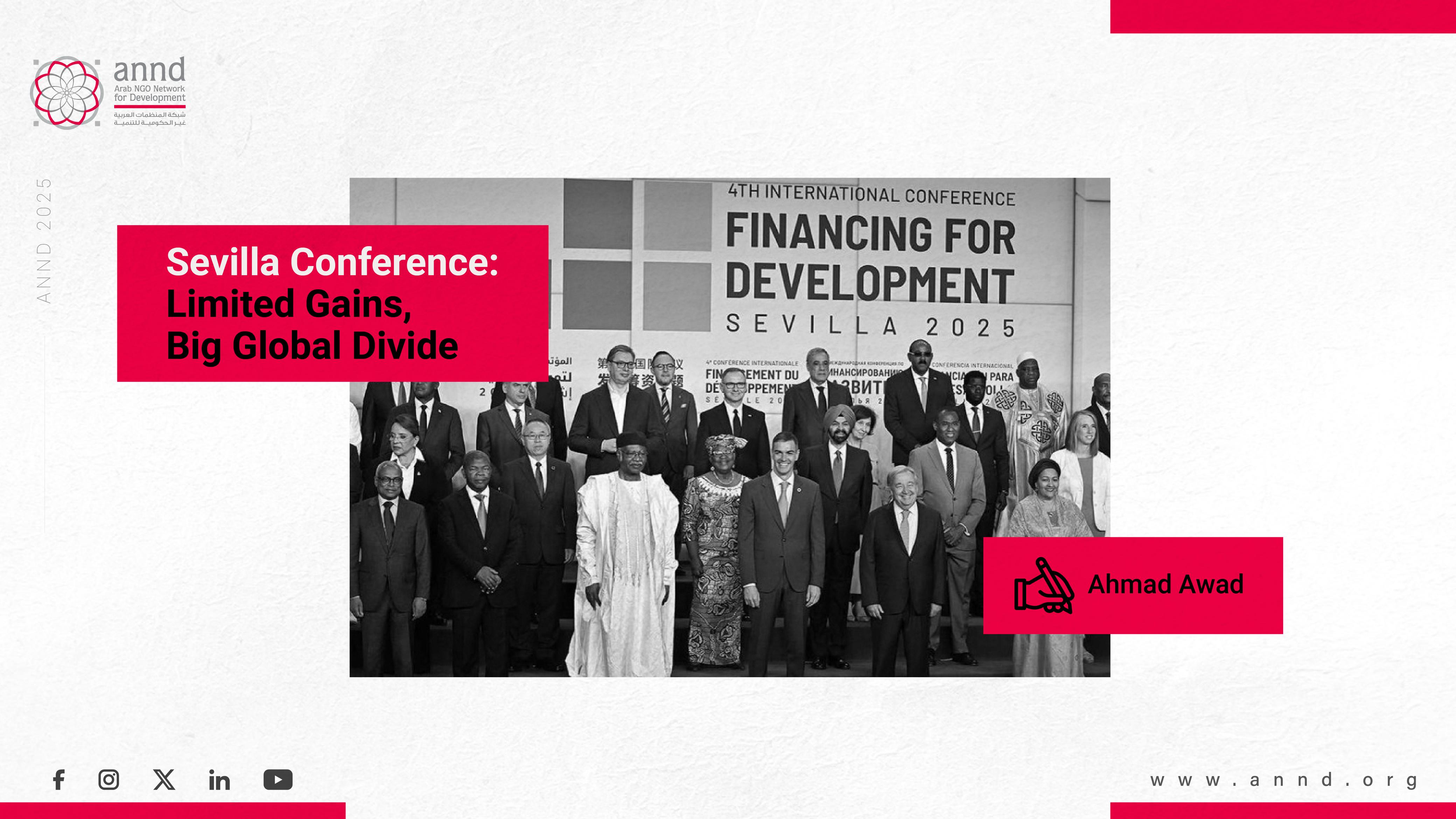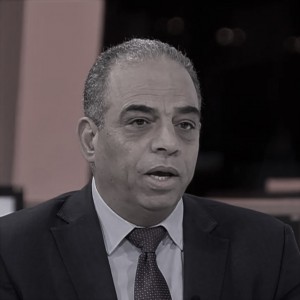Sevilla Conference: Limited Gains, Big Global Divide – Ahmad Awad
After the conclusion of the Fourth International Conference on Financing for Development (FfD4) in the Spanish city of Sevilla, the features of what this major UN event yielded began to become clearer, which came at a critical moment where countries around the world seek to accelerate the implementation of the 2030 Sustainable Development Plan, address escalating economic crises, and reform the structure of the international financial system.
The conference’s final document, known as the "Sevilla Commitment," formed a new roadmap in some aspects, but it also revealed the depth of imbalance in the power structure, and the continued "neoliberal" dominance over development directions, which caused widespread disappointment among large sectors of human rights and development civil society organizations worldwide and many Global South countries.
Despite the heavy criticisms directed at the final outcomes of the conference, there are undeniable positive points, which were welcomed by several rights and labor entities.
Among the most prominent achievements is the focus on decent work and social protection, where the "Sevilla Commitment" called for increased investment in productive sectors, strengthening the care economy, creating decent job opportunities, and working on integrating the informal (unregulated) economy into the formal economic cycle, with a clear goal set to raise social protection coverage in developing countries by 2% annually.
The document also stipulated enhancing local resource mobilization, through doubling development partners' support for the efforts of developing countries to increase tax revenues by 2030. This approach is considered a necessary step to reduce dependence on debt and conditional aid.
In the field of technology, the document proposed establishing a UN mechanism to assess the social and environmental impacts of emerging technologies, such as artificial intelligence and digital currencies, before their widespread adoption. Although the proposal remains general, it reflects a growing awareness of the need to regulate innovations to protect the rights of peoples and their environment.
However, despite the importance of these achievements, they were not sufficient to cover the fundamental shortcomings in the document, which civil society organizations described as a "political failure" and a "blatant betrayal" of the peoples of the Global South.
The document failed to adopt a fair and transparent mechanism for sovereign debt restructuring, and the proposals to reform the debt architecture were emptied of their substance during negotiations. In this context, it was clear that creditor countries, especially in the Global North, exercised influence that led to the blocking of any real breakthrough for heavily indebted countries.
The document continued to adopt the "private finance first" approach, despite previous failures of this approach in supporting sustainable development. This approach contributed to deepening inequalities, increasing countries' indebtedness, and weakening governments' ability to provide basic services such as health and education to their citizens, while any strict commitments requiring the private sector to respect human rights or decent work standards were absent.
Although the document referred to the necessity of providing annual climate finance amounting to 4 trillion dollars, it avoided committing to crucial details such as the gradual phasing out of fossil fuel subsidies. It also lacked clear measures to reallocate Special Drawing Rights (SDRs) to enable developing countries to face climate and economic crises.
The absence of civil society from the final negotiations and the weak transparency in drafting the document sparked widespread criticism. The declaration of the Civil Society Forum, held parallel to the conference, expressed great disappointment, considering that the "Sevilla Commitment" did not meet ambitions but rather deepened the gap between the North and the South.
In light of the above, what is required today is not a slight improvement but a radical transformation in development financing approaches. Among the top priorities to work on are:
reforming the sovereign debt architecture through establishing a fair international debt restructuring mechanism under UN supervision, ensuring transparency and respect for human rights without imposing austerity policies. In addition to the necessity to adopt a fair global tax system that imposes fair taxes on global profits, especially in polluting industries, through a UN agreement on international tax cooperation. Also, regulating private investments through binding rules governing companies' commitment to labor standards, human rights, and environmental protection, including reaching a binding international treaty to regulate multinational corporations. Alongside this is restructuring development cooperation based on justice and mutual accountability, away from the logic of charity, and enhancing cooperation among Global South countries themselves. And pressing for true climate justice, including phasing out fossil fuels, increasing public climate financing, alongside demanding environmental reparations from Northern countries.
In summary, the Sevilla conference was a missed opportunity in terms of ambition, but it was also a new starting point for the struggle for global economic justice. The "Sevilla Commitment" cannot be considered an end in itself but merely the beginning of a long path that must be led by the peoples of the Global South with a unified will and clear strategy.
As the United Nations prepares to hold the Fifth Financing for Development Conference (FfD5) in 2030, the goal should be to redefine development financing as a tool for economic liberation, not as a tool for domination and restriction. The time has come to restore economic sovereignty and build a fairer and more equitable global system for future generations.



